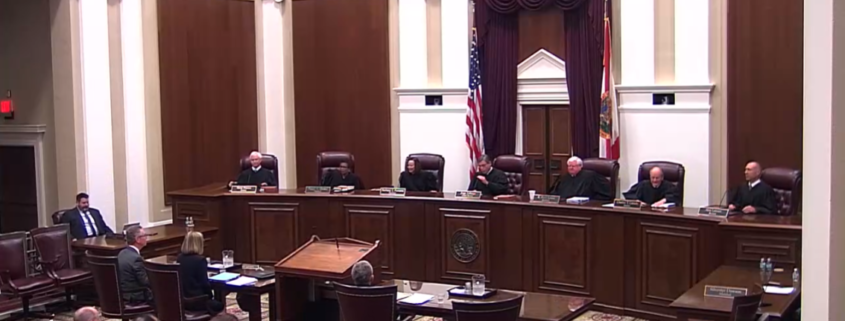Collaborative Law Rules Approved by Florida Supreme Court
On May 18, 2017, the Florida Supreme Court published an opinion approving collaborative law rules. The collaborative law rules are the last step necessary before Florida’s Collaborative Law Process Act goes into effect.

The opinion approves Rule Regulating the Florida Bar 4-1.19 and Florida Family Law Rule of Procedure 12.745.
Rule Regulating the Florida Bar 4-1.19
Florida Bar Rule 4-1.19 is a rule of professional conduct. It creates certain obligations of attorneys representing clients within the collaborative process. Among other things, the rule requires collaborative lawyers to do the following when contemplating collaborative practice with a client:
- Provide sufficient information about the benefits and risks of the collaborative process;
- Explain alternatives to the collaborative process, including litigation and mediation;
- Convey that the collaborative process is voluntary and a client may terminate it for any reason or no reason;
- Explain that the collaborative attorney focuses solely on reaching an out-of-court agreement and is barred from representing the client in subsequent legal proceedings if the collaborative law process is terminated;
- Explain how fees and costs work within the collaborative process, including fees of a facilitator and financial professional;
- Provide for a written Participation Agreement to commence the collaborative process; and
- Screen for intimate partner violence.
Family Law Rule of Procedure 12.745
Rule 12.745 is added to Florida’s Family Law Rules of Procedure. Among other things, Rule 12.745 does the following:
- Provides that a collaborative law process begins when the clients sign a collaborative law participation agreement;
- Directs judges to pause any proceedings if a collaborative process starts after a case has already been filed;
- Explains how to successfully conclude a collaborative case or terminate it without an agreement;
- Provides for procedures if a collaborative attorney is discharged or withdraws;
- Allows courts to approve interim (non-final) agreements reached within the collaborative process;
- Permits clients, by mutual agreement, to use other forms of private dispute resolution, such as mediation or parent counseling, while the collaborative process is ongoing;
- Grants judges authority to issue emergency orders to protect the health, safety, welfare, or interest of a party or household member as defined in section 741.28, Florida Statutes;
- Blocks collaborative attorneys from appearing in contested court hearings related to the collaborative matter; and
- Prevents attorneys in a law firm associated with the collaborative attorney from appearing in contested court hearings related to the collaborative matter.
Collaborative Law Rules As Last Step For Collaborative Statute
Per the Florida Supreme Court’s opinion, the Collaborative Law Rules become effective July 1, 2017. Thirty days after that, pursuant to section 8 of chapter 2016-93 of the Laws of Florida, Florida’s Collaborative Statute, known as the Collaborative Law Process Act (part III of Chapter 61), will go into effect. This will give force of law to the privacy, privilege, and confidentiality elements of the collaborative law process.
Adam B. Cordover, one of Tampa Bay’s most experienced collaborative attorneys, is former president of Next Generation Divorce, a practice group of independent professionals covering Hillsborough, Pinellas, Pasco, Sarasota, and Manatee Counties. Adam now trains attorneys mental health professionals, and financial professionals how to offer collaborative services.




